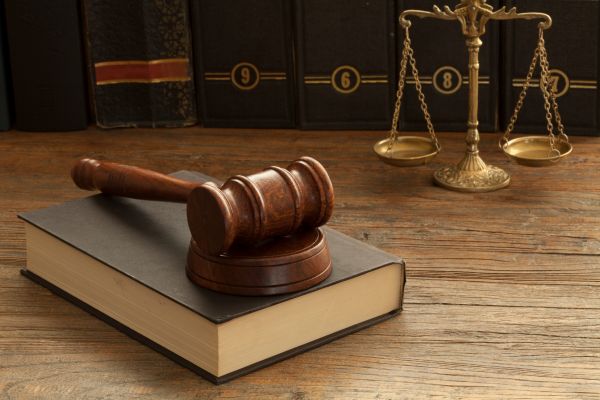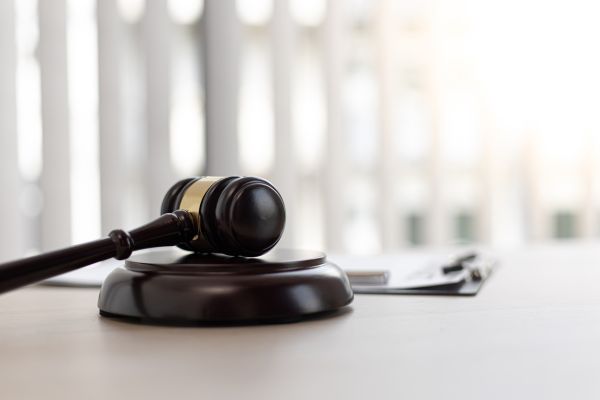It is perceived in the academic community that the final phase of a student career, i.e., during postgraduate (PG) and doctoral (Ph.D), is the major contributor to both academic research as well as research crimes. The research crimes are the results of academic harassment, the policy of publish or perish etc. Further, the research crimes might be yielding or contributing, in the final phase of a student career, to ‘student suicide’, the most severe epidemic in India; which is yet to be studied. Starting with Soumya Pillais’ exposure of research crime, Aditya Sinhas’ suggestion to refocus India’s patent strategy, Siba P Panigrahi suggested the pressing need for extension of IP laws to curb trending features of research crimes in India. This article suggests a method to extend the IP laws.
As exploited, misrepresentation is a form of research crime. This article exhibits two such instances relying on the cases disposed of by the High Court of Odisha to argue that: (a) anonymous academic regulation is a tool for academic harassment, (b) student is a form of Intellectual Property (IP) and the supervisor is the IP owner, (c) the supervisor as a necessary party in the litigation involving PG Dissertations or Ph.D theses, and (d) the IP left paves the path for IP theft.
Exhibit-1: Abhishek Mohanty & Anr V. Vice Chancellor, VSSUT & ors
The petitioners in this case worked under a supervisor, submitted their PG dissertation, and appeared in the seminar and viva-voice examination on 12th January 2021 (hereinafter, examination). The Opposite parties (OPs) going against legitimate expectations of the students allotted a new supervisor directing the students to start a new dissertation. The petitioners approached the court praying for a direction to publish the results of the examination. The OPs took permission to trace the records, however, fabricated a record advanced as resolutions of the academic council dated 08.10.2021. The supervisor was neither a party to the case nor protested the move.
Exhibit-2: Sasmita Kumari Padhy V. State of Odisha & Ors
One student was allotted to the petitioner for his Ph.D thesis. Meanwhile, the supervisor was placed under illegal suspension, which was later treated as on duty. The lawful academic regulation as approved and signed by the Board was completely silent on the issue of change of the supervisor due to suspension of the supervisor. However, the OPs changed the supervisor. The petitioner sought a certified copy of the academic regulation. The Dean who was accountable for said regulation misplaced lawful regulations, and instead of supplying the requested document supplied four contradicting views in different instances. Finally, the OPs issued the degree to the student under a new supervisor who had no prior published work in the subject line of Ph.D thesis.
Anonymous Academic Regulation
The Act and Statute governing the university provide the formulation of lawful academic regulations by the academic council, approved and signed by the apex executive body of the university (the Board of Management or Executive Council or Board of Governors as the name may be, hereinafter, the Board). However, a number of universities issue anonymous documents to their web pages as academic regulations; in certain cases, universities under the regime of corrupt Vice Chancellors (VC) throw away lawful regulations approved and signed by the Board and instead issue fabricated and forged anonymous documents. This article explores the use of the forged regulations in two writ petitions from the High court of Odisha, first harassing the students against their legitimate expectation to know the results of the examination, and second, nepotism used to facilitate IP theft and sell undeserved degrees.
Student/ Scholar as IP of the supervisor
Intellectual Property (IP) is a category of property that includes intangible creations of the human intellect including the trademark and the trade secret. Trademarks are a type of IP consisting of a recognizable expression that identifies a service from a particular source and distinguishes it from others. Trade secret is a type of IP that includes practices and processes that are not generally known or readily ascertainable by others, and which their owner takes reasonable measures to keep secret.
Universities through the students and their supervisors play a significant role in the development of intellectual property (IP), primarily in the form of patents and copyrights. The supervisor provides a unique pattern of service to the student which is different from others. The service of the supervisor is a sort of trademark. Secondly, the process of imparting the said service (knowledge) is also through unique practices and processes that are not generally known or readily ascertainable by others qualifying it to the definitions of trade secret.
When a student changes his/her supervisor, these services/ practices/processes no more remain secret and there is all likelihood that these pass to another supervisor. It is, hence, worth observing the student as an IP of the supervisor and shall be kept intact. Provisions of the academic regulation also corroborate this observation those require the consent/ permission of the present supervisor on the requirement of a change in supervisor.
Legal Position of the Supervisor
University academic regulation shall provide for the allotment of PG/Ph.D supervisors with their role starting with the allotment of the student/ scholar and continuing till the examination of the dissertations/ theses.
Rule 6.5 at page 5 of the anonymous regulations provides the distribution of award of 100 marks for M.Sc. dissertation as: “(1) Day to day work (awarded by the Supervisor) – 50 Marks; (2) Dissertation (Awarded by the Committee) – 10 Marks; (3) Presentation of dissertation Seminar (Awarded by the Committee) – 20 Marks; and (4) Viva Voce (Awarded by the Committee) – 20 Marks”. The pass mark is set at 35 as per table 4, rule 10.1 on page 8 of the said anonymous regulation. The distribution of marks shows the importance of the day-to-day activities comprising the process and practices as well as the supervisor.
In Abhishek Mohanty & Anr V. Vice Chancellor, VSSUT & ors, the opposite parties (OPs), through Annexure-1 of the counter affidavit, advanced resolution of the Departmental Academic Committee (DAC), where for the failure of the student, DAC made the supervisor accountable.
PG/ Ph.D theses are IPs of the student and the supervisor. Further, a property gives value for the owner like the supervisor earns due credits during recruitment and promotions for supervising PG/ Ph.D students.
Supervisor-A Necessary Party
Order 1 of Rule 9 of Code of Civil Procedure (CPC) that defines the necessary party to a suit is based on the principle of natural justice. A necessary party is one whose presence is a sine qua non to the constitution of the suit and without whom, no effective order can be passed with respect to the questions arising before the court. The Supreme Court in Kasturi V. Iyyamperumal (2005) laid down two tests for determining the question of whether a particular party is a necessary party to a proceeding, and the tests are: (i) there must be a right to some relief against such party in respect of the matter involved in the proceeding in question; and (ii) it should not be possible to pass an effective decree in absence of such a party.
As stipulated in the anonymous regulations, the supervisor is sufficient to make a student pass the examinations on the dissertation. The student has the right to demand marks from the supervisor. Further, by supervising the student, the teacher benefits during the furtherance of his/her career and hence has the right to restrict the university from taking a decision in his/her absence.
Hence, in suits involving dissertations/ theses, the supervisor may be treated as a necessary party.
Concluding Remarks
In summary, because they bring value to the field of intellectual property, the author sees PG or Ph.D. students as intellectual properties. Although they collaborate, the supervisor is the IP owner—not the owner of the second party. The relevance of the supervisor is established by both the governing academic legislation and the prevalent examination practice, as per order 1, Rule 9 of CPC, which grants the supervisor the status of necessary party. IP left, in the end, creates the conditions for IP theft, which can occasionally lead to student suicide, India’s deadliest epidemic.
Author: Siba Prasada Panigrahi is a Final Year LLB student at Ganjam Law College, Berhampur, Odisha.






